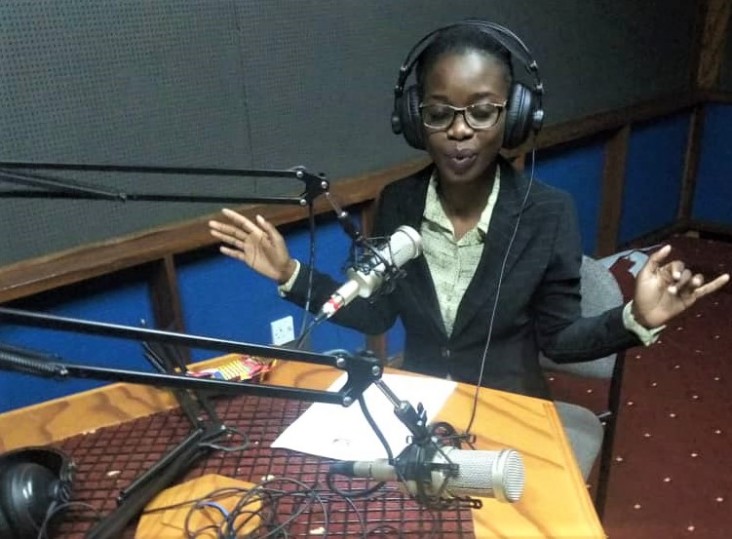Press Release Shim
Speeches Shim

For Immediate Release
LUSAKA - In support of the Ministry of General Education’s (MoGE) response to COVID-19, the U.S. Agency for International Development’s (USAID) Let’s Read project has developed audio-based “Tips for Teachers” and “Folktales for Students” to ensure continued literacy instructional and professional support for teachers and learners during the pandemic.
The new audio-based programs are provided through Interactive Radio Instruction, an approach that uses radio broadcasts of pre-recorded, interactive lessons to reach students, teachers, and parents. Developed in partnership with the MoGE Early Childhood Education (ECE) Centers, which focus on Grade 1 through Grade 3, the programs offer an innovative distance-learning solution for students and teachers in the five USAID Let’s Read target provinces—Eastern, Muchinga, North-Western, Southern, and Western.
“Teaching and learning can no longer be confined to the classroom situation, particularly during this COVID-19 pandemic. We need, therefore, to devise new and better ways to reach out to our learners,” said Dr. Jobbicks Kalumba, MoGE Technical Permanent Secretary. “With support from our cooperating partners, like USAID, the Ministry will ensure that teachers are assisted in every way possible for them to be more skillful and innovative.”
For the new radio-based programs, USAID Let’s Read adapted five folktales originally developed for face-to-face instruction in Zambia’s seven primary local languages of instruction. Through the folktales, learners are presented opportunities to model fluency, build vocabulary, develop an understanding of book knowledge and story structures, and are encouraged to learn to read on their own while at home. The initiative’s overarching goal is to ensure that both learners and teachers can use their existing resources and these new materials to continue the process of learning while keeping well and safe at home.
“In response to the Covid-19 pandemic and its impact on education, the U.S. government remains committed to ensuring that the support to the Ministry of General Education continues, particularly our assistance to early-grade reading and teacher professional development,” said U.S. Embassy Chargé d’Affaires David Young. “Worldwide, countries are working tirelessly to develop distance learning for students, and Zambia is no exception. This innovation has come at the right time as it offers an opportunity for teachers and students to continue the learning process during this difficult time.”
Successfully launched on July 27, the “Tips for Teachers” programs will be broadcast on ZNBC Radio 2 every Monday, Wednesday, and Friday at 09:00hrs, and be repeated at 15:00hrs, with the broadcast schedule for “Folktales for Students” to be announced soon. On May 14, in advance of this initiative, the USAID Let’s Read project provided information and communication technology equipment to the MoGE’s Educational Broadcasting Services to aid in the production of audio lessons and instructional materials. USAID Let’s Read is currently working with the Ministry’s ECE program to develop and record additional Interactive Audio Instruction materials to be released in early 2021.
With U.S. government funding of approximately K875 million ($48 million) over a five-year period, USAID Let’s Read is the U.S. government’s flagship education project in Zambia. Launched in January 2019, the project aims to improve reading outcomes for 1.4 million Zambian children in over 4,200 public and community schools, and help ensure that learners read with comprehension and fluency in one of Zambia’s seven official local languages.

Comment
Make a general inquiry or suggest an improvement.